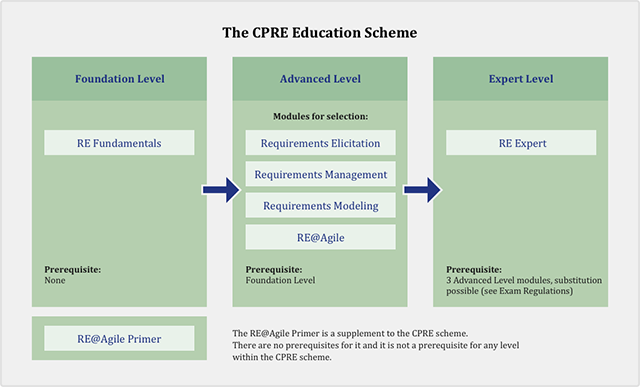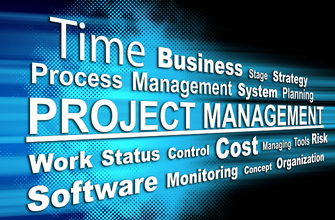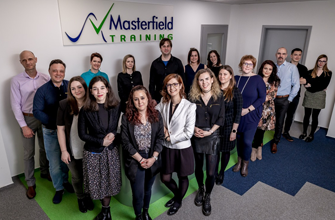339 500 HUF + VAT (885 EUR + VAT)
IREB Certified Professional for Requirements Engineering (CPRE) Foundation course - Dates and application
First training day: 10 November 2025, Further training days: 11., 12.
339 500 HUF + VAT (885 EUR + VAT)
First training day: 15 December 2025, Further training days: 16., 17.
339 500 HUF + VAT (885 EUR + VAT)
First training day: 2 February 2026, Further training days: 3., 4.
339 500 HUF + VAT (885 EUR + VAT)
First training day: 13 May 2026, Further training days: 14., 15.
339 500 HUF + VAT (885 EUR + VAT)
Applying for closed-group training
Application without a date
In the course students get a comprehensive knowledge of the theoretical background of working out and managing requirements, as well as being prepared for the IREB Certified Professional for Requirements Engineering (CPRE) Foundation Level exam.
Mainly for testers, developers and business analysts working with requirements in the field of software testing within the IT sector and wishing to obtain an internationally recognized qualification.
At least an intermediate knowledge of English since both the course material and the certification exam are in English.
Training content - IREB Certified Professional for Requirements Engineering (CPRE) Foundation course
This course is also available in e-learning format!
Our training center is a training partner officially recognized by IREB, our course complies with the strict requirements set by them. The course is given in Hungarian, while the course materials and supplementary materials are in English.

The course - with regard to the characteristics of the CPRE Foundation Level exam - focuses mainly on theory, on terms and the foundations of the methods. Moreover, in the supplementary materials you will find several tasks aimed at broadening your knowledge, as well as sample exam questions helping you prepare for the CPRE Foundation Level exam.
The place of Foundation Level in the CPRE model:

You will find a list of recommended literature for the course on the webpage of IREB.

Syllabus:
1 Introduction and Overview of Requirements Engineering
1.1 Requirements Engineering: What kind of requirements exist? (categorizing requirements, functional and nonfunctional, constraints, assumptions)
1.2 Requirements Engineering: Why should we collect requirements?
1.3 Requirements Engineering: Where do the requirements come from? (business, user and system requirements)
1.4 Requirements Engineering: How should we collect requirements?
1.5 The Role and Tasks of a Business Analyst and a Requirements Engineer (required skills and the importance of communication)
2 Fundamental Principles of Requirements Engineering
2.1 Value-orientation
2.2 Stakeholders
2.3 Shared understanding
2.4 Context and scope
2.5 Problem – Requirement – Solution
2.6 Validation of requirements
2.7 Evolution
2.8 Innovation
2.9 Systematic and disciplined work
3 Work Products and Documentation Practices
3.1 Work Products in Requirements Engineering
3.2 Natural-Language-Based Work Products (how to write good requirements, typical mistakes)
3.3 Template-Based Work Products (sentence templates)
3.4 Model-Based Work Products
3.4.1 Why and how should we use modeling?
3.4.2 Class diagram
3.4.3 Activity diagram
3.4.4 Data flow diagram
3.4.5 State machine diagram
3.4.6 Use case diagram
3.5 Glossaries
3.6 Requirements Documents and Documentation Structures, Specification Templates
3.7 Prototypes in Requirements Engineering
3.8 Quality Criteria for Work Products and Requirements

4 Practices for Requirements Elaboration
4.1 Sources for Requirements
4.2 Elicitation of Requirements, Elicitation Techniques (Interviews, Questionnaires, Brainstorming, Document Analysis, Observation, Prototyping, etc.)
4.3 Resolving Conflicts regarding Requirements
4.4 Validation of Requirements
5 Process and Working Structure
5.1 Influencing Factors
5.2 Requirements Engineering Process Facets
5.3 Configuring a Requirements Engineering Process
6 Management Practices for Requirements
6.1 What is Requirements Management?
6.2 Life Cycle Management
6.3 Version Control
6.4 Configurations and Baselines
6.5 Attributes and Views
6.6 Traceability
6.7 Handling Change
6.8 Prioritization Techniques (Kano model, Wieger Prioritization Matrix, Ranking, etc.)

7 Tools
International Requirements Engineering Board (IREB) Certified Professional for Requirements Engineering (CPRE) Foundation Level exam.
Following the course, you can take an online exam at our training center at a pre-arranged time, or you may take the exam on paper in an external location, organized and previously announced by the Hungarian Testing Board. The course fee does not include the exam, please contact our colleagues for the current prices.
For more information, visit: IREB.
Trainers
Do you have any questions about the training?

Course administrator
WOULD YOU IMPROVE YOUR SKILLS IN THIS TOPIC?
If you wish to get a deeper knowledge of this field, you can choose from these additional courses.
You may also be interested in these courses and e-learning packages
You may find the courses below interesting
Business Analyst and Requirement Engineer (IREB, IIBA, IQBBA) E-learning

PMI® - PBA (Professional Business Analyst) exam preparation e-learning

IIBA® Entry Certificate in Business Analysis (ECBA™) exam preparation e-learning

IIBA® Certification of Capability in Business Analysis (CCBA®) exam preparation e-learning

IIBA® Certified Business Analysis Professional (CBAP®) exam preparation e-learning

ITIL® 4 Specialist: Business Relationship Management e-learning with exam voucher

Change Management Practitioner e-learning





























Kiváló magyarázatokat kaptunk, életszerű példákkal.
ISTQB Advanced Test Analyst vizsgafelkészítő tanfolyam résztvevője